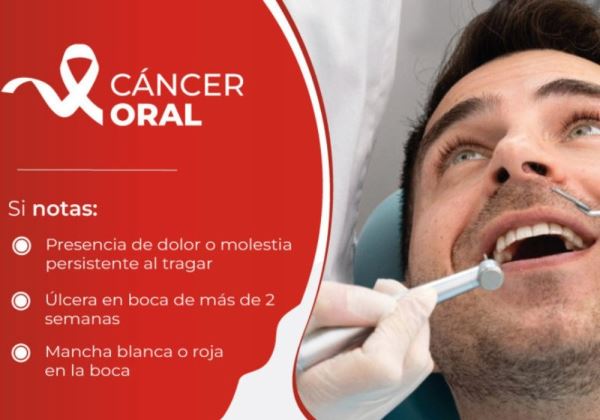Our Blog
The General Council of Dentists launches its 6th Oral Cancer Campaign
Every year 600,000 cases of oral cancer are detected worldwide and it is the cause of more than 1,500 deaths per year in Spain, a figure that could be greatly reduced if the disease were detected in time. Therefore, from November 4 to December 5, people over 45 years of age who request it will be able to undergo a free oral check-up at any of the clinics registered in the campaign. Participating dentists will receive the “Guide to the management of patients with oral cancer” in normal and pocket format; meanwhile, the general population will be able to take a risk test on the website https://canceroral.es/ where they will also find information about this pathology, its signs and the factors that increase the possibility of suffering from it, as well as the list of participating clinics to make an appointment https://canceroral.es/listado-clinicas/
The role of the dentist before, during and after oncological treatment.
In this edition, the Oral Cancer Campaign focuses on the clinical recommendations that the dentist should provide to the patient with oral cancer before, during and after oncological treatment, since chemotherapy and radiotherapy usually have several side effects such as:
• Xerostomia: dry mouth can vary greatly and affect the patient's ability to chew, speak and swallow.
• Caries: there is a high risk of caries, especially on root surfaces, which are difficult to treat routinely, so it is important to take extreme oral care.
• Infection: oral mucositis, which occurs with varying degrees of pain, can significantly complicate oral hygiene. This situation increases the risk of infections and makes it difficult to maintain optimal oral health.
• Burning, swelling or peeling of the tongue: this is usually more common in intensive head and neck radiotherapy treatments.
• The change in taste can vary, and preferences may be different during and after treatment. It may be a long-term change.Possible increase in periodontal disease
“Dentists must ensure that patients complete their oncological treatment while maintaining the highest quality of life, causing minimum damage to their teeth and oral health. Although not all possible side effects can be avoided, they can be minimised,” explains Dr. Óscar Castro, president of the General Council of Dentists.
With this 6th Oral Cancer Campaign, the Professional Organisation wants to fulfil a double objective: to raise awareness of the importance of dental check-ups to detect the disease in its early stages, and also to vindicate the role of the dentist in multidisciplinary oncology teams to provide the patient with more comprehensive care and, therefore, greater well-being.

